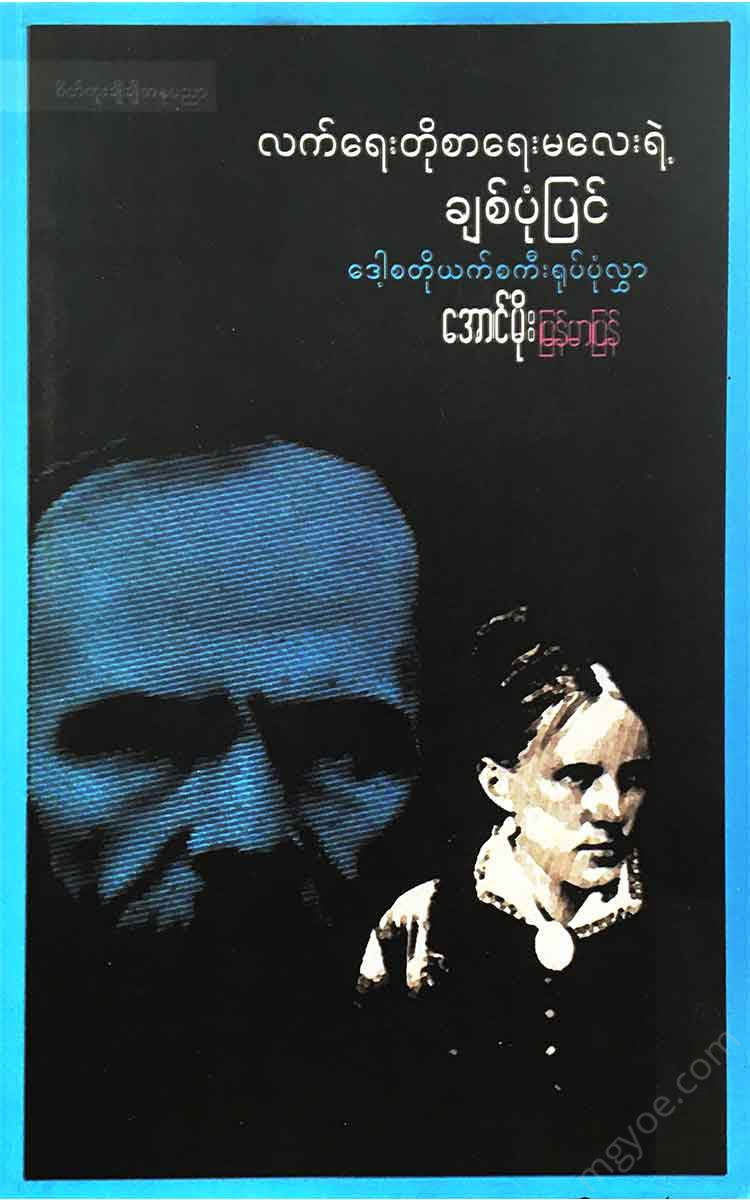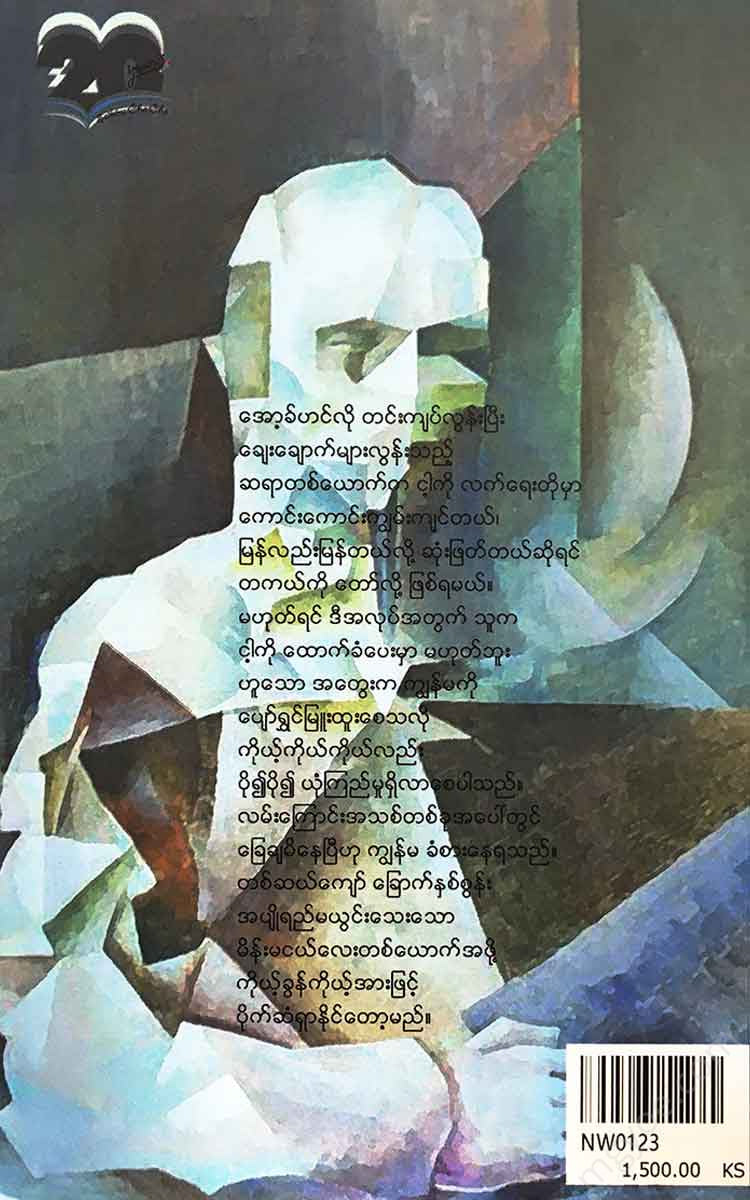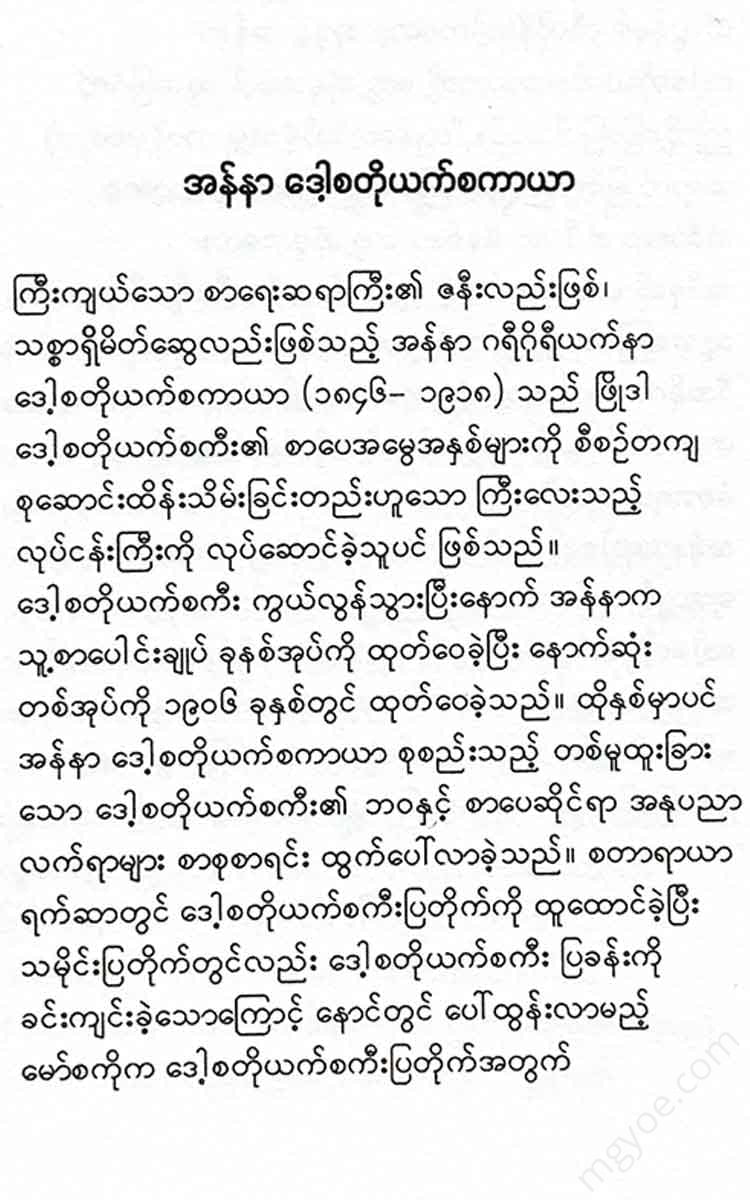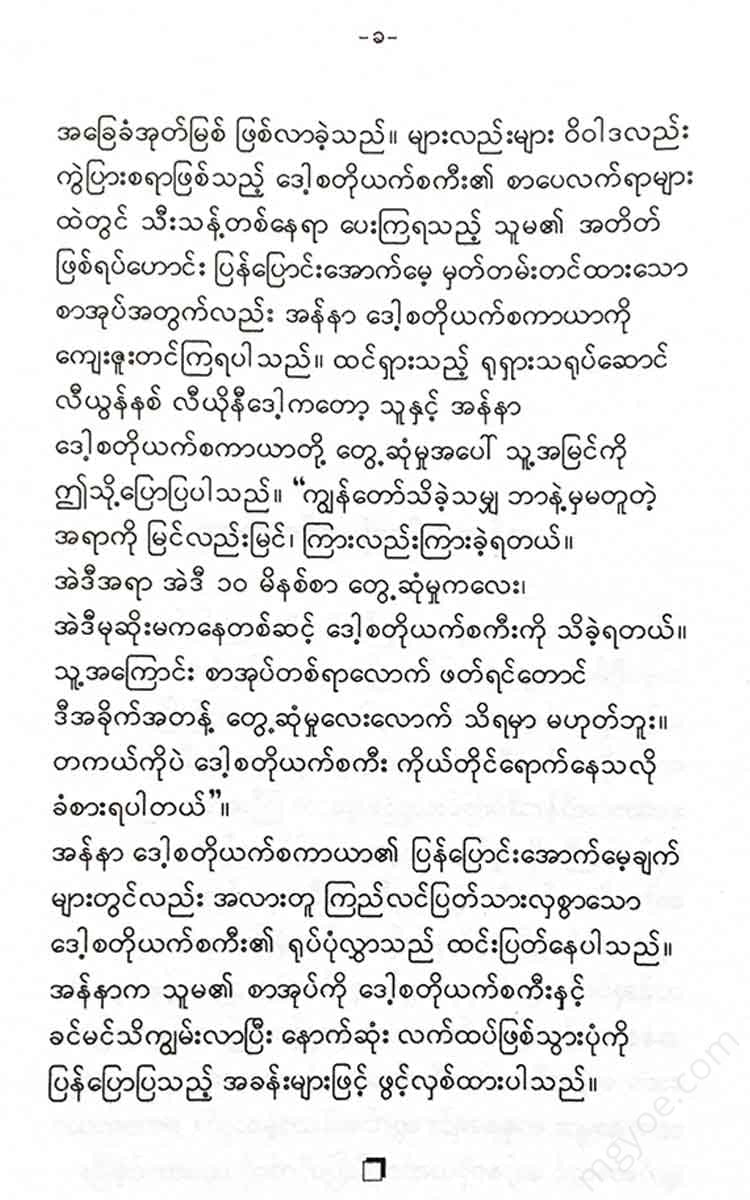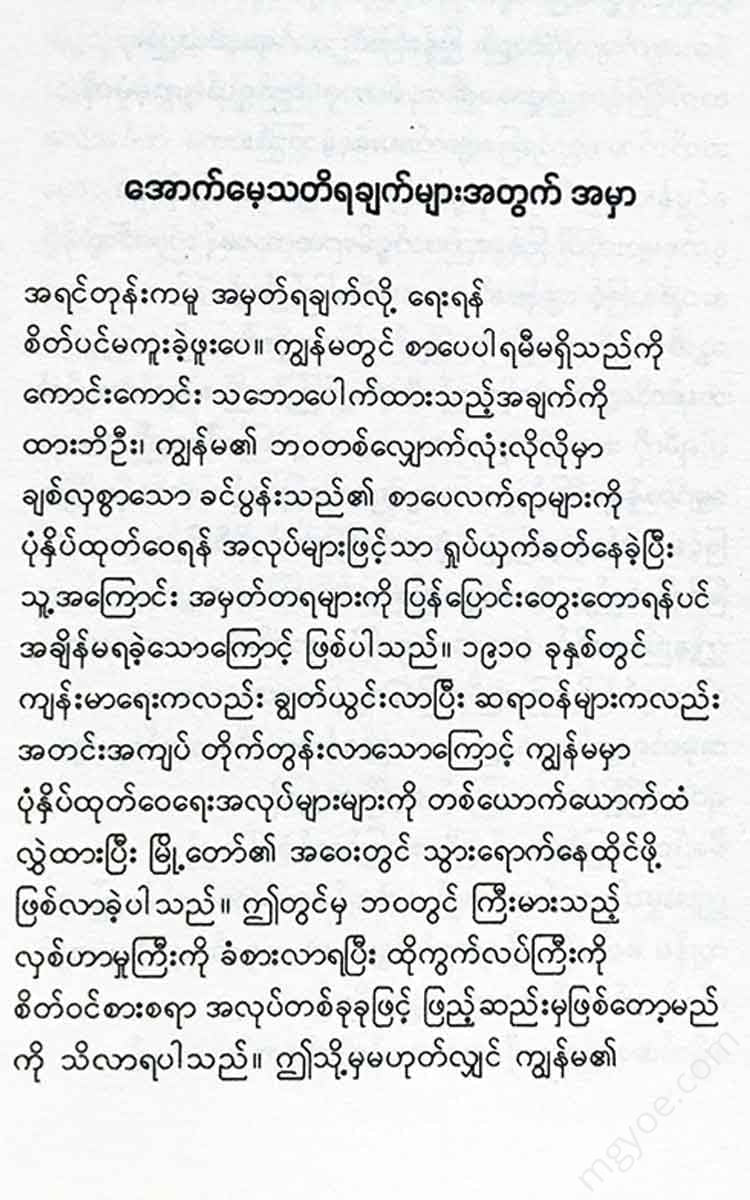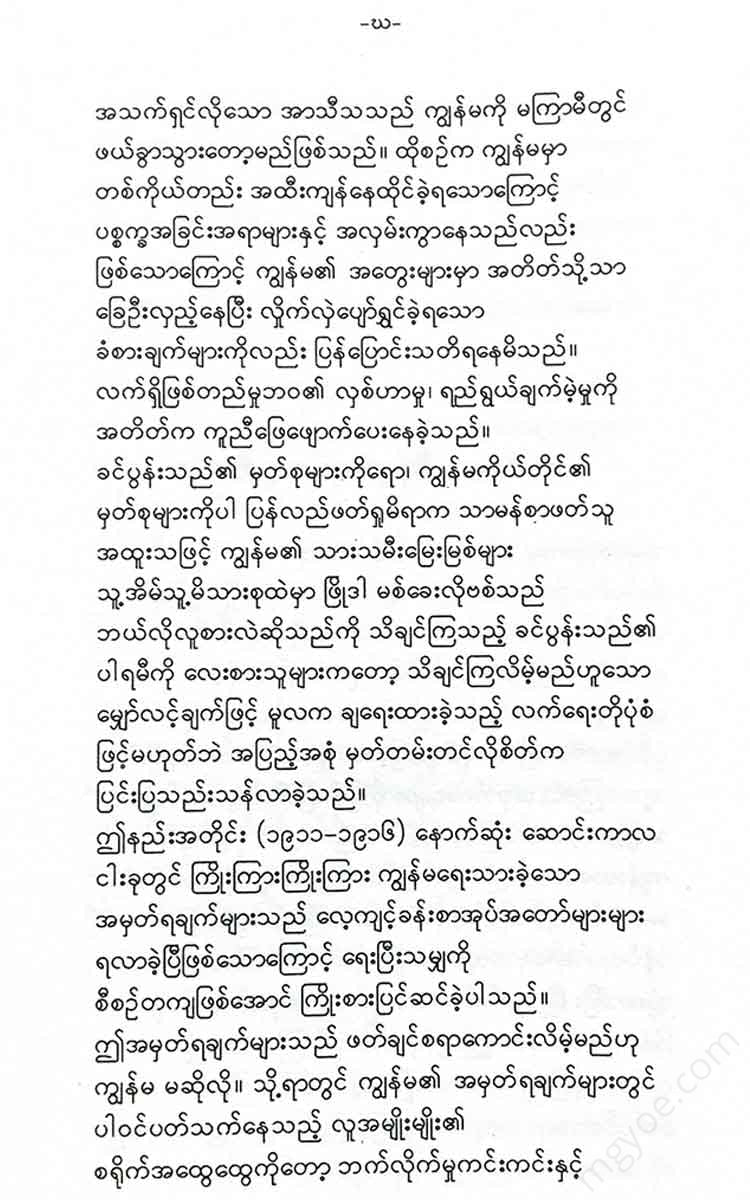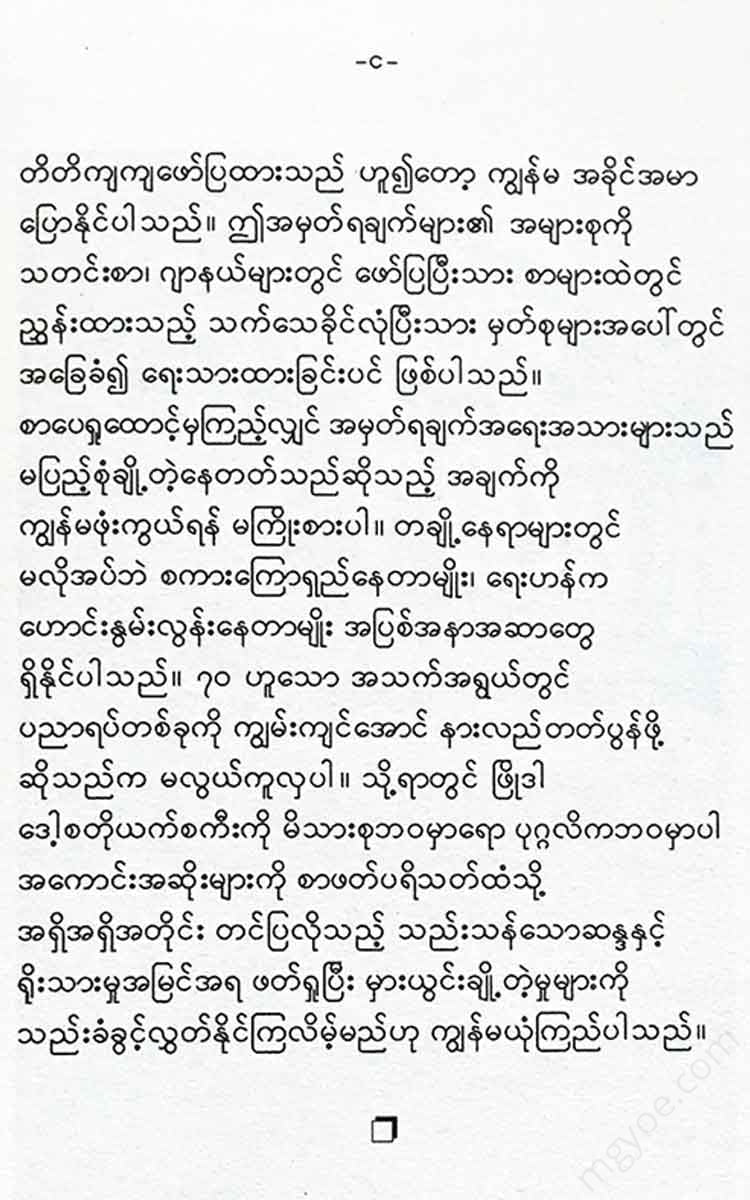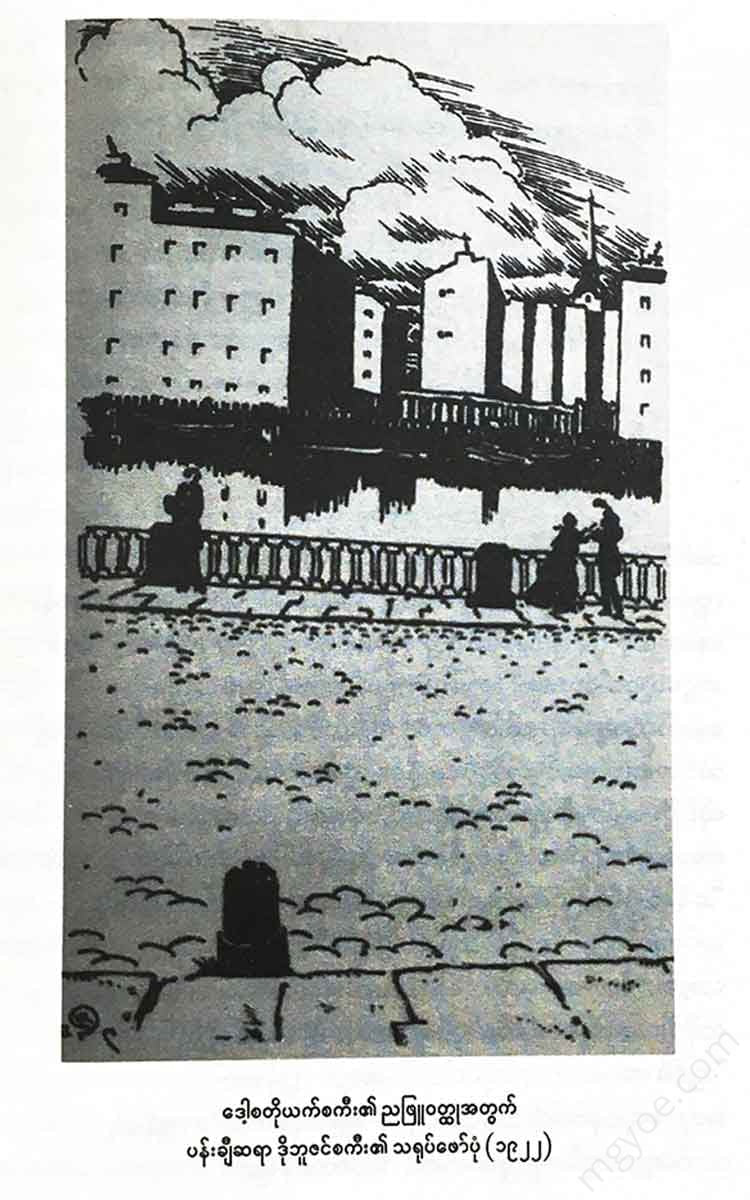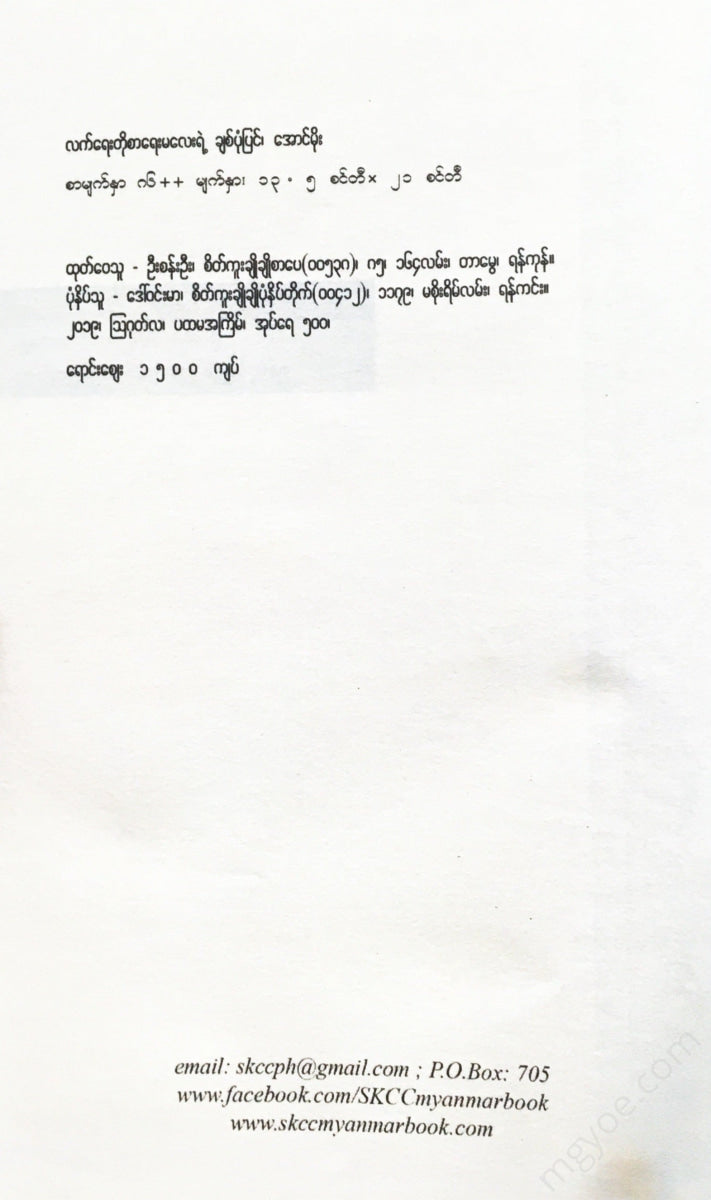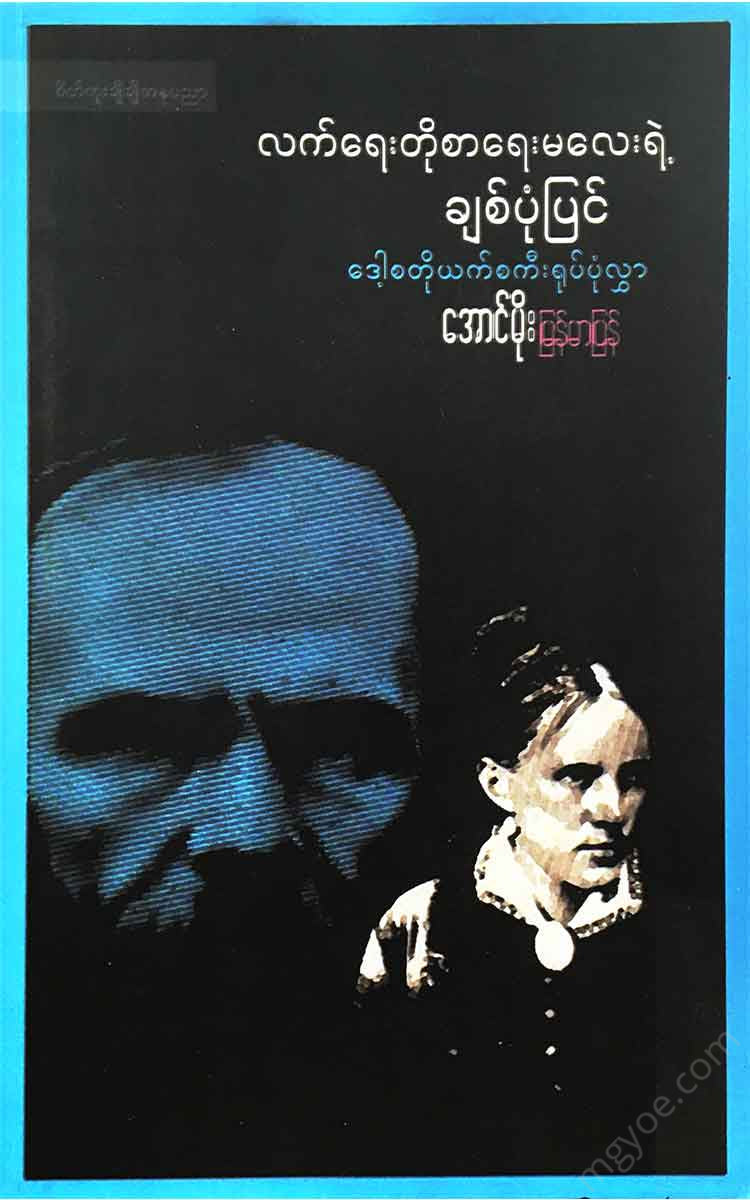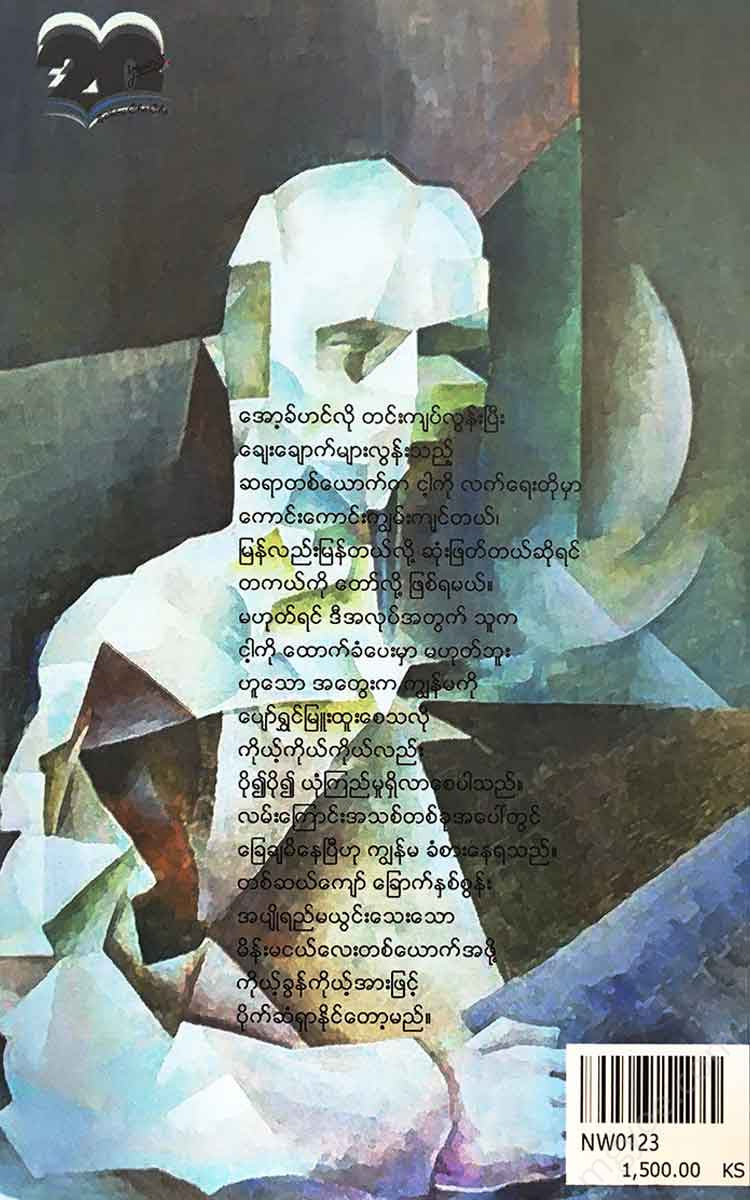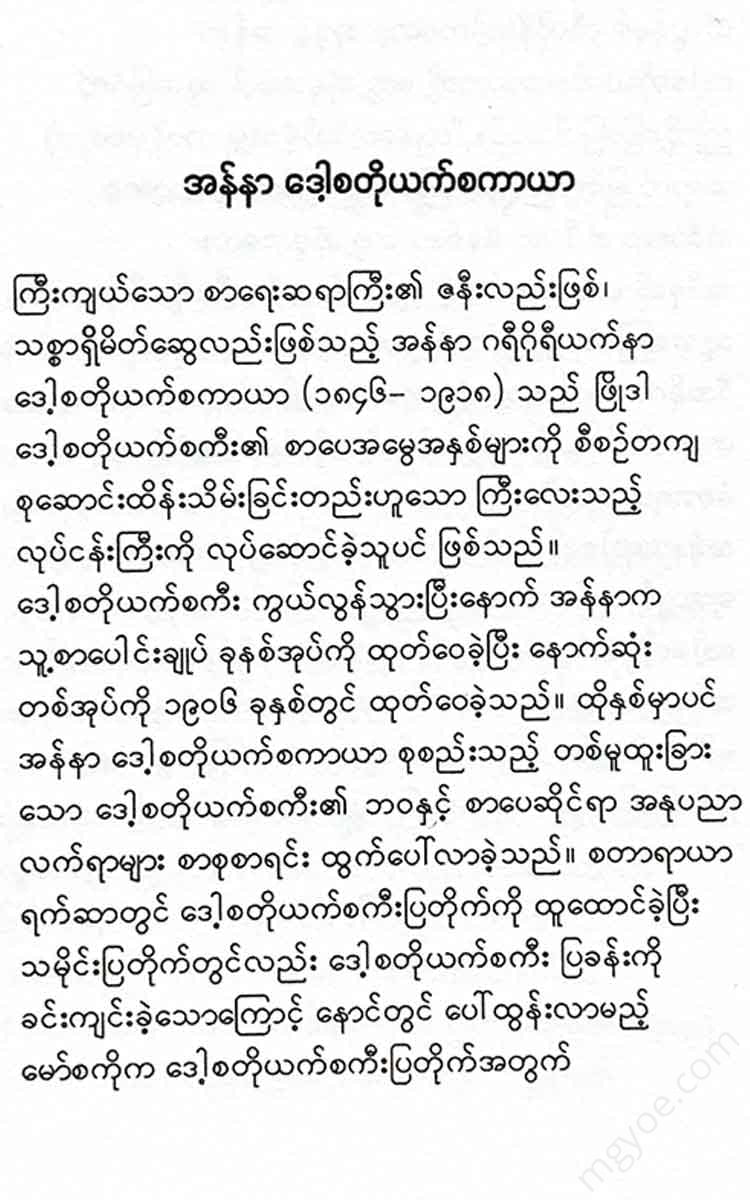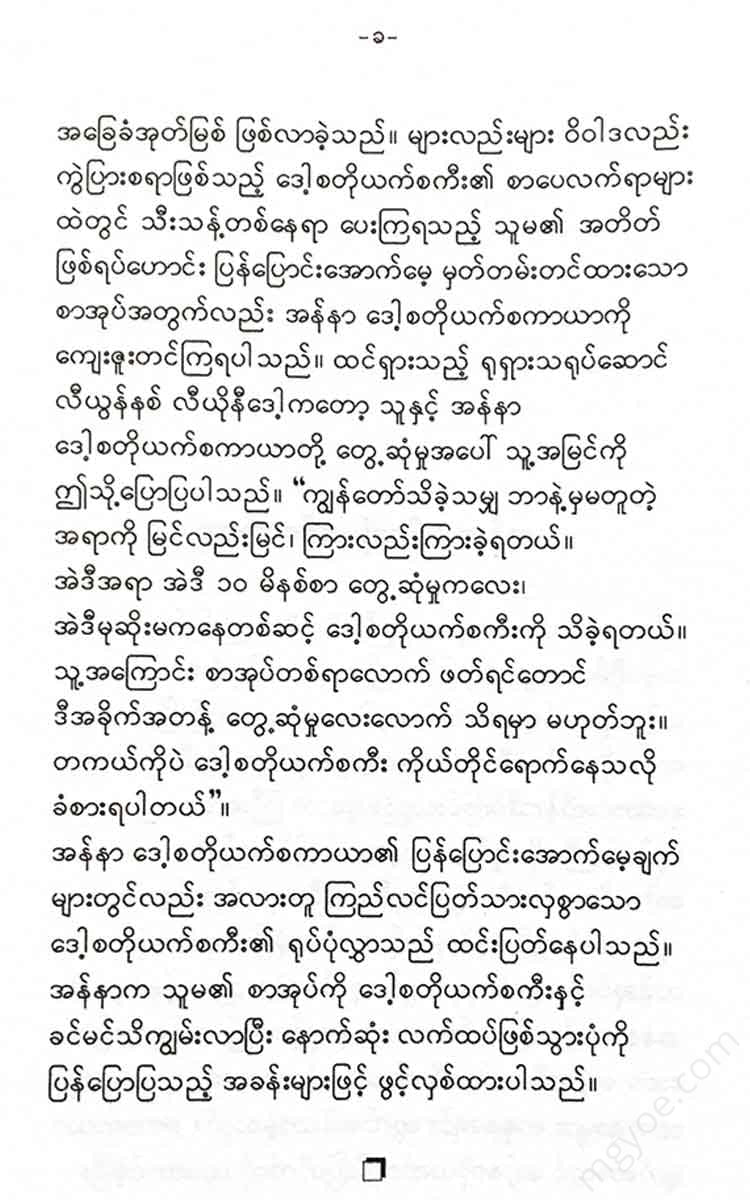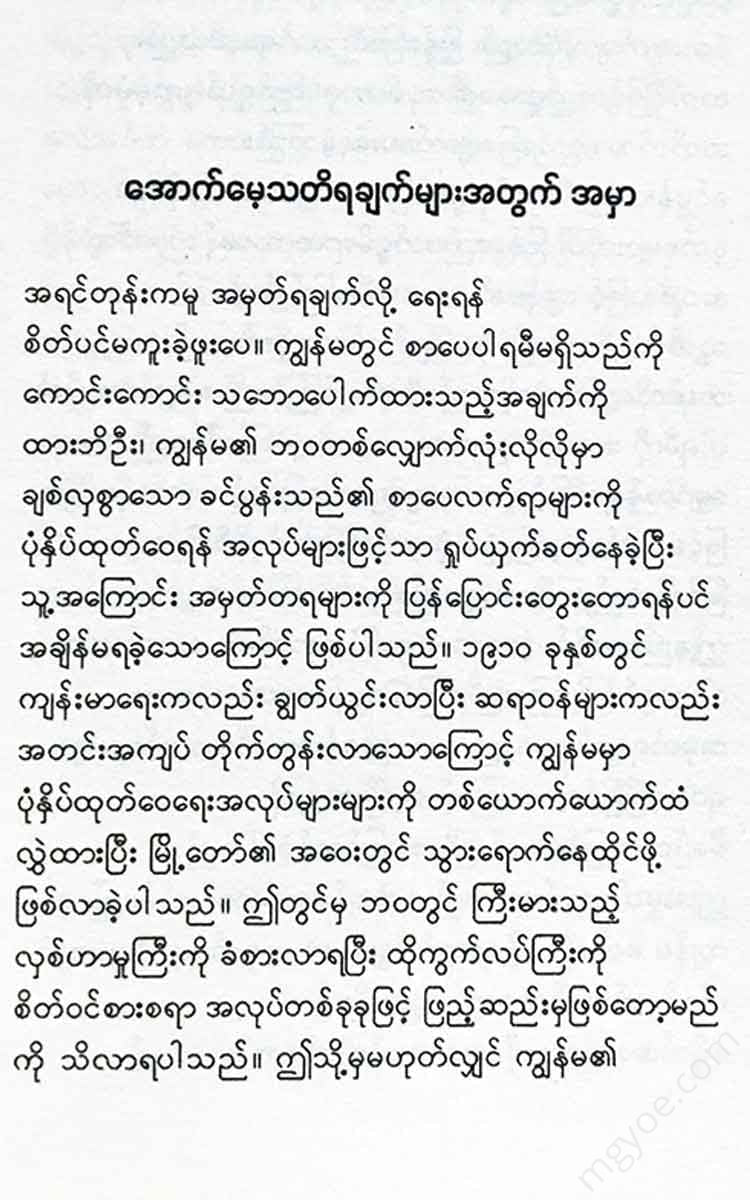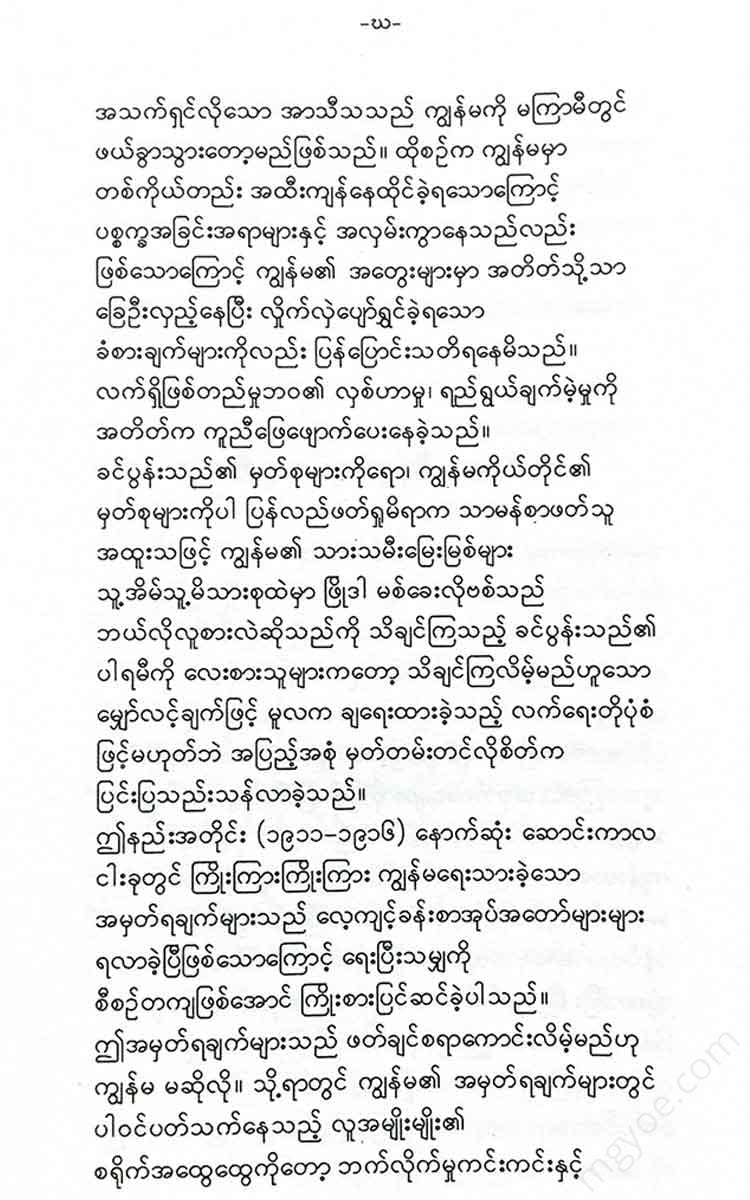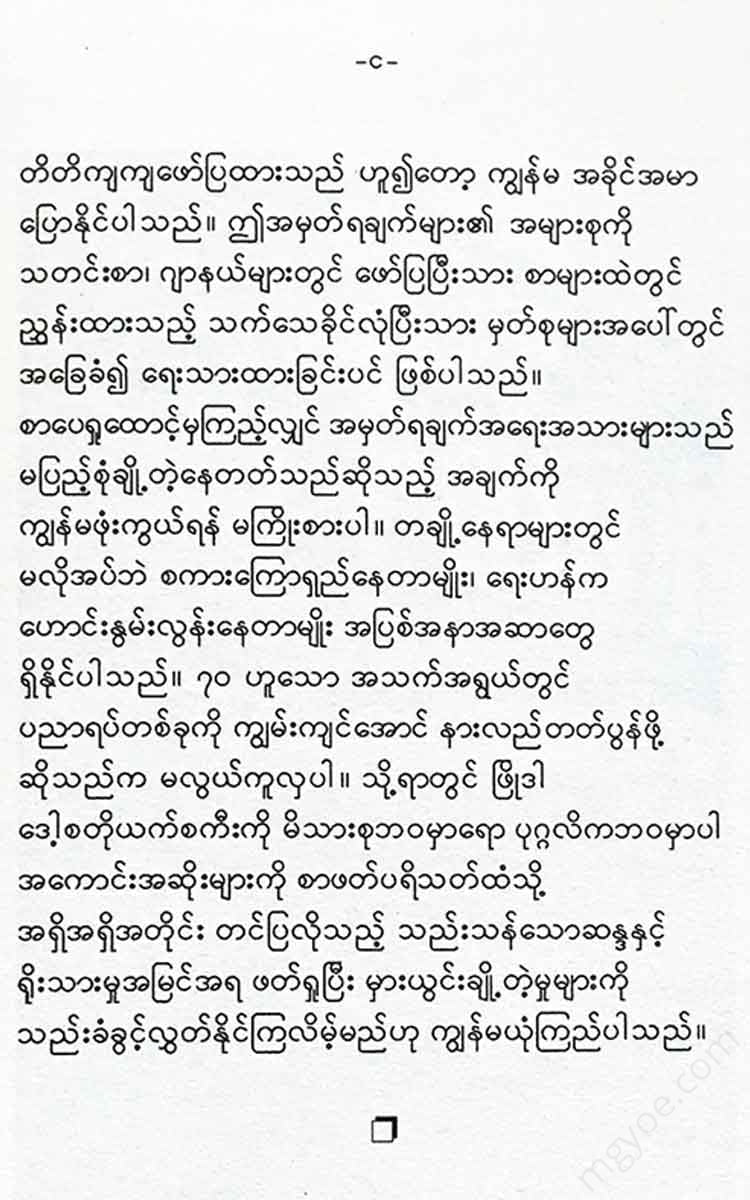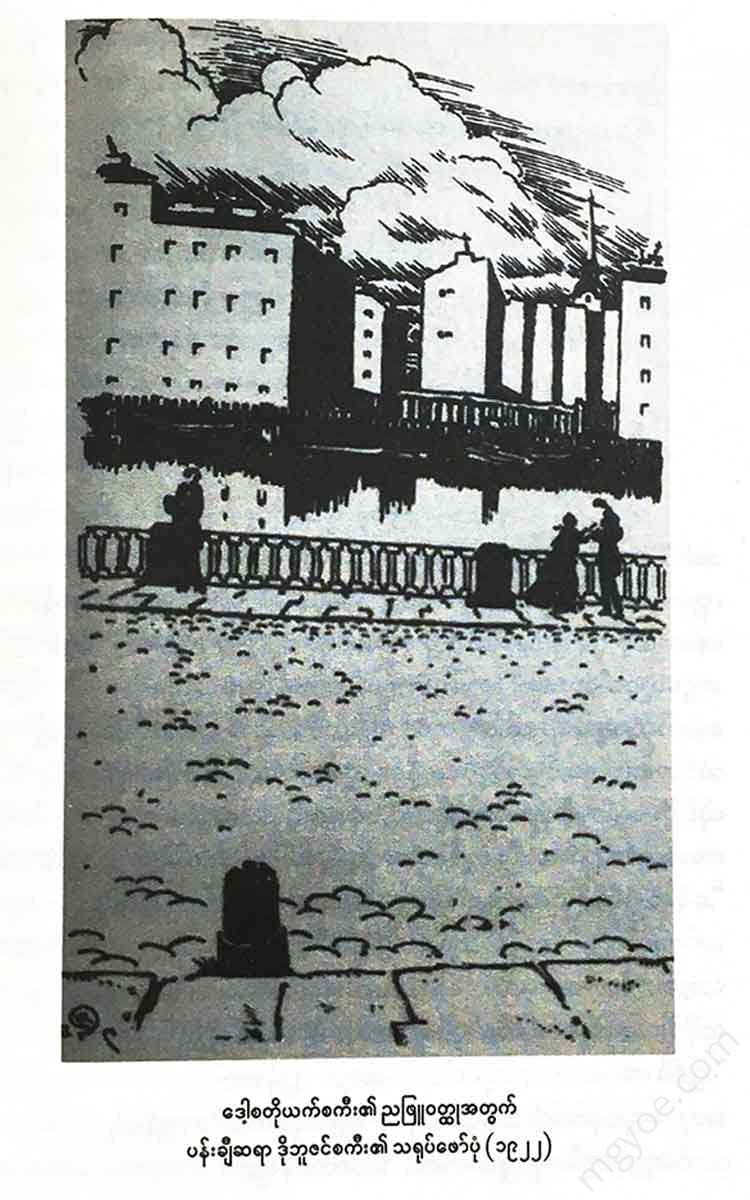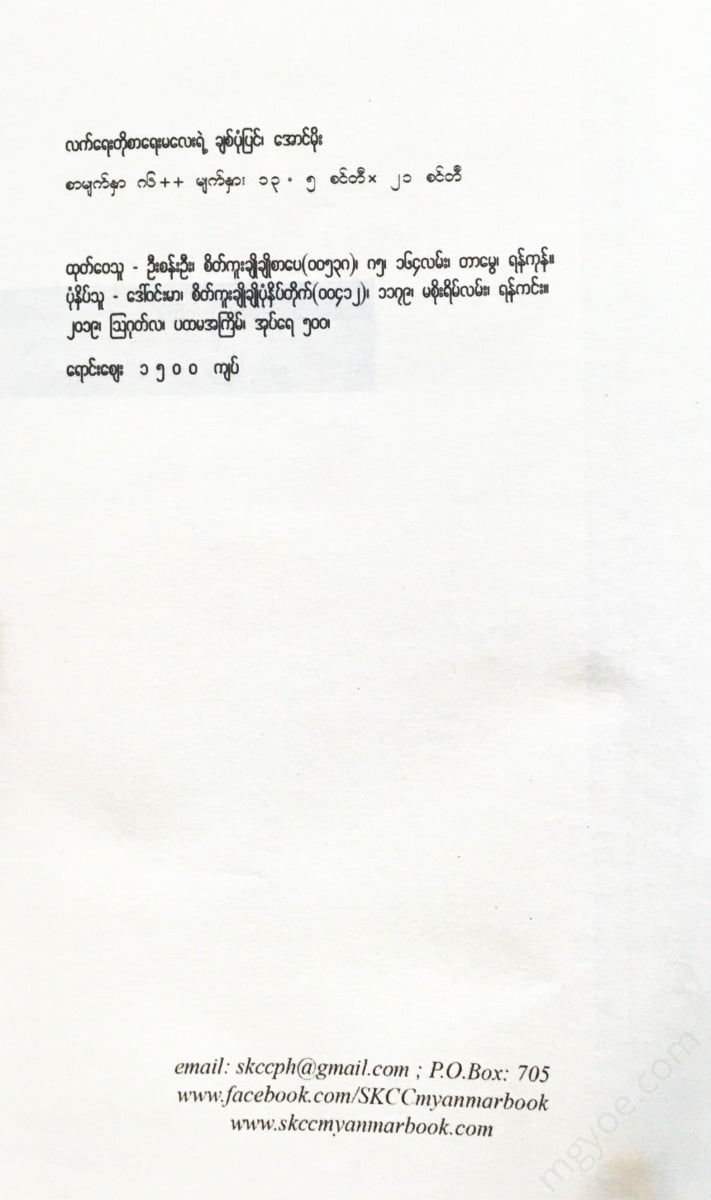စိတ်ကူးချိုချိုစာပေ
Aung Moe - A handwritten love story of a young girl who is a police officer
Aung Moe - A handwritten love story of a young girl who is a police officer
Couldn't load pickup availability
First meeting with Dostoevsky
(1)
It was October 3, 1866. I arrived at the Sixth Boys’ Gymnasium at 7 a.m., as usual, to listen to another lecture by P. M. Keckin on shorthand. The class was almost over, with the latecomers waiting one by one. I sat down in my usual place and opened my exercise books. Ochkin came and sat down on the bench next to me. “Anna Grigorievna, how would you like to do a shorthand job?” Ochkin asked. “I was asked to find a shorthand writer, and I wondered if you would like to do it.” “I would very much like to do it, sir. I have been waiting for an opportunity to start working. I am only concerned whether I can handle such a task with my shorthand skills.” Ochkin assured me that the work would not require any more speed than I already had. “Who would you like to work for, sir?” I wondered. “For the writer Dostoevsky. He is currently writing a new novel. He is preparing to write it with the help of a stenographer. Dostoevsky has offered me fifty rubles for the whole volume, since the novel is quite long and consists of seven parts.” I accepted the terms with enthusiasm. Dostoevsky was a name I had known since childhood. He was my father’s favorite writer. I was a great admirer of his work. I was moved to tears when I read his notes from his late home. The prospect of not only getting to know a gifted writer but also helping him with his work thrilled me.
Okhin handed me a piece of paper folded in four. On the paper was written the address. “Dostoevsky, the apartment building, corner of Stoyany Lane and Meshchanskaya Street, building 13,” he asked. “Please go and see Stoevsky tomorrow at half past eleven. Not earlier, not later. He himself came to ask for help from the teacher today.” Okhin then told me his opinion of Dostoevsky. I will tell you more about it in the next chapter. Okhin looked at his watch and walked to his desk. At that moment, I had to admit that the lecture was a complete waste of time for me. I was filled with joy at the thought that my long-cherished dream had come true. I silently exclaimed, “I have a job.” Okhin was so strict, If a teacher who was so sloppy decided that I was good at shorthand and fast, it must be really good. The thought that otherwise he would not have recommended me for this job made me happy and gave me even more confidence in myself. I felt that I had set foot on a new path. For a young girl in her late sixteenth year, still a virgin, the joy of earning her own money, of attaining the goal of independence, which was so valuable, was incomparable. But even more satisfying and more important than the thought of working was the prospect of working with Dostoevsky and getting to know the writer personally. When I got home and told my mother about the unexpected offer, she was also very happy with my success. I was so excited that I lay awake all night, just imagining what kind of person Dostoevsky would be. I thought of him as a contemporary of my father, and he was a good man. One moment I saw a tall, bald man, and the next I saw a tall, thin figure, but he looked, as Ochsen would say, thin and serious. The thought of what I would say to him when I first met him terrified me. The thought of Dostoevsky as a man of great intellect and reason made me hesitate to say anything. I had a feeling that I would start talking about his novels, and the thought of knowing all the first names and surnames of the characters in his novels terrified me. There were no writers in my circle. I thought that writers were a different kind of people, and that to talk to them you would need a separate language. Every time I think back to those times, I smile because I was still a child, even though I was only 20 years old.
